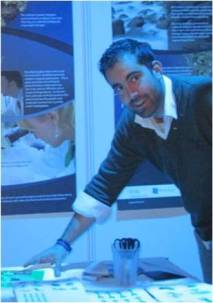On my last blog I wrote regarding the now famous acronym STEM (Science, Technology, Engineering and Maths). STEM is used to envelop a myriad of disciplines, and it is now becoming a common word. Even STEM curricula are becoming common for second level students. Nonetheless, STEM does not come without its critics, and it is about them I would like to talk today.

Dr. Mark Changizi raises the issue of how the acronym STEM can endanger its own purpose. The purpose of STEM is clear, and I referred it in my previous blog: promoting science is not enough, we need to promote to our young generations all of the scientific and tech disciplines that are core to our knowledge society. Nevertheless, what Dr. Changizi criticizes is the grouping under the same umbrella of very different disciplines. If you think about it, there are some strong points there; it is difficult to put in the same umbrella a mechanical engineer and a zoologist. Ok, they are both, without a doubt, part of STEM, but promoting one area to your youth is completely different than promoting the other. The motivations and interests that make a person like zoology are not the same that make one like mechanical engineering. So being this acronym so general does it become innefective? In Dr. Changizi’s opinion the answer is clear, yes. The conclusion that his reasoning leads to, STEM must die, seems a bit over the top, in my opinion. Nonetheless, the argument being put forward is valid. But then what is the solution? Promoting to our young people every particular part of STEM does not really seem doable, or even desirable. STEM came up because all these different areas are part of our tech society and not enough students were following them. So, something needed to be done to promote these different areas. The difficulty on how to promote them best is still a very open debate.
In my opinion, killing STEM is not really a solution; it is a question of how the acronym is viewed. In the way I view it, STEM does not mean you are trying to promote the different disciplines as a single unit, it just means that different people in different areas are promoting a part of it. The use of the acronym in the initiatives just brings out that all of them are important, although all different. Ultimately it comes down to a personal choice for the students. Hopefully, the students will have the possibility of experiencing initiatives from a large variety of initiatives, choosing the area that is in hers/his interest.
P:S: My PhD research became a bit overwhelming in the last few months, therefore I was absent in my blog writing. Hopefully I am now back to a more regular writing routine.